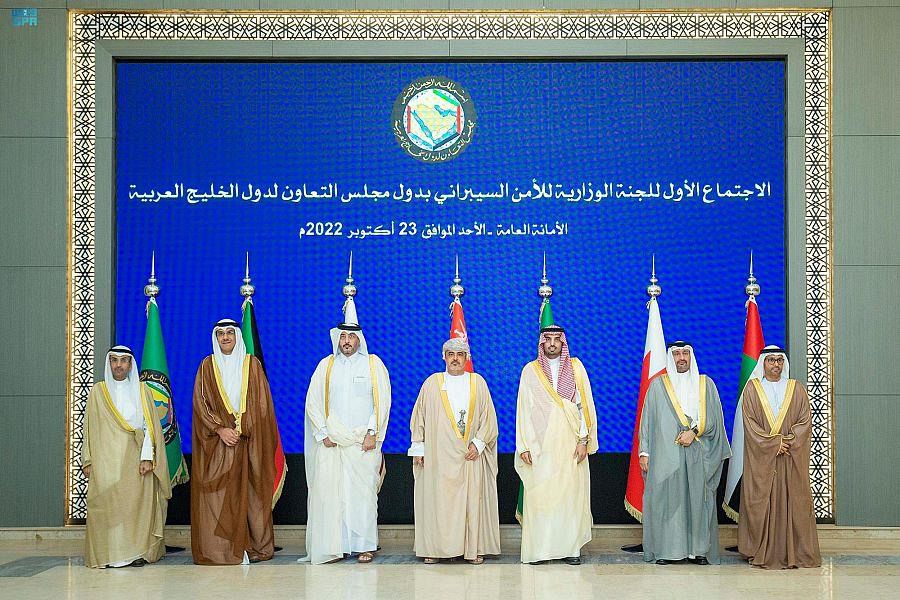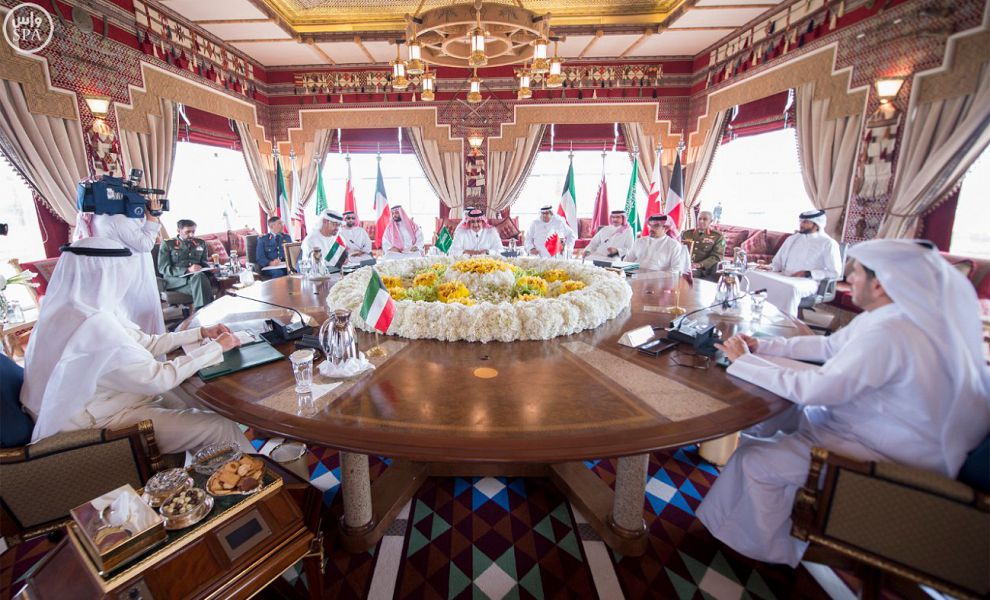
A Gulf Cooperation Council delegation on Monday met for the first time with representatives from the de facto authorities in Afghanistan, aka the Taliban, in Qatar. Previously, representatives from individual GCC member states had met with the group in various capacities, mostly to discuss the delivery of humanitarian assistance, security and logistics. While the mere fact that a meeting such as the one that took place in Doha was an event in itself, the participants managed to exchange valuable information and get important messages across.
Paradoxically, since the war in Afghanistan ended, the country has descended into a humanitarian crisis because of economic isolation, the drying up of financial resources and the inability to provide basic government services. At the Doha gathering, GCC representatives stressed the importance of addressing the urgent humanitarian needs of the people of Afghanistan, as international reports depict a grim reality. According to the UN World Food Programme, Afghanistan is becoming the world’s largest humanitarian crisis, with its needs surpassing those of Ethiopia, South Sudan, Syria and Yemen. Tens of millions of lives are at stake. The WFP found 22.8 million people could face acute risk, while 8.7 million face emergency levels of hunger, indicating a serious risk of widespread famine. The UN estimates that 97 percent of Afghans could fall into poverty during 2022.
GCC countries have been at the forefront of humanitarian efforts in Afghanistan. The King Salman Humanitarian Aid and Relief Center has maintained a regular flow of aid to the country, as have relief agencies in other GCC countries. At the Doha meeting, GCC representatives expressed their readiness to contribute further to mobilizing international and regional resources to provide humanitarian assistance and improve economic conditions in Afghanistan. They also addressed some of the challenges facing humanitarian work, including ensuring the security of aid convoys to enable them to deliver aid to their intended recipients.
While there is consensus on addressing humanitarian needs, the political side of things is more problematic, as the new rulers of Afghanistan lack diplomatic recognition by any country, including the GCC states. Despite that fact, it is important to respect Afghanistan’s sovereignty, political independence, unity and territorial integrity, which means that Afghans decide their own future — a message that was delivered very clearly by the GCC representatives at the Doha gathering.
The GCC previously publicly stated its position on Afghanistan in the communique issued after its December 2021 summit. After more than 40 years of strife, it is for the benefit of the country to seek national reconciliation and a consensus political solution that fulfills the aspirations of the people of Afghanistan, takes into consideration the interests of all components of its society, and respects basic freedoms and rights, including women’s rights to work and education.
Combating terrorism and drug trafficking in Afghanistan is of the utmost importance for the GCC and the rest of the world. Afghanistan has, for too long, been plagued by terrorism and extremism. Al-Qaeda, for example, set up its base there a long time ago and plotted attacks from the country, with ruinous results. The GCC representatives condemned all terrorist attacks, which have targeted civilians and civilian structures in Afghanistan. They stressed the GCC’s solidarity with Afghanistan as it aims to enhance security and combat terrorism and organized crime. But they also expressed concerns that terrorist groups may be able to launch attacks against other countries from Afghan territory. They emphasized the need for the de facto authority to ensure that Afghanistan’s territory is not used by terrorist groups for any reason or exploited by traffickers to export drugs.
The Gulf representatives stressed the importance of addressing the urgent humanitarian needs of the people of Afghanistan.
Dr. Abdel Aziz Aluwaisheg
Another issue that the GCC representatives communicated was the need for Afghanistan to remain closely engaged with the international community and to listen to its expectations and concerns. This applies especially to the Organization of Islamic Cooperation, UN bodies, the World Bank and International Monetary Fund, whose political, security and economic advice can be instrumental in getting Afghanistan the help it needs. If there is any delay in living up to the international community’s expectations and dealing with its concerns or in carrying out the obligations the de facto authority has made regarding combating terrorism and respecting human rights, including the rights of women and children, Afghanistan’s troubles may intensify.
The meeting stressed the importance of continued engagement in contributing to preserving Afghanistan’s security and stability and meeting the humanitarian needs of the country’s people. However, this engagement did not imply political recognition of the new order in Afghanistan. It provides for cooperation on practical issues, especially humanitarian assistance and combating terrorism, while getting first-hand insights into developments on the ground and progress made in the different issues discussed in Doha.
Dr. Abdel Aziz Aluwaisheg is the GCC Assistant Secretary-General for Political Affairs & Negotiation, and a columnist for Arab News. The views expressed in this piece are personal and do not necessarily represent GCC views. Twitter: @abuhamad1
Disclaimer: Views expressed by writers in this section are their own and do not necessarily reflect Arab News" point-of-view








